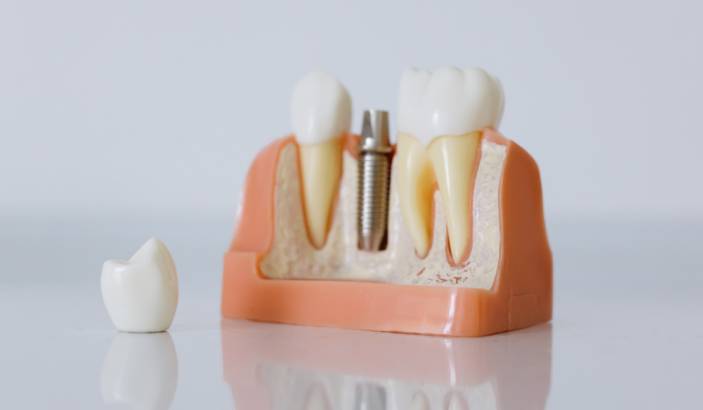Missing teeth can significantly impact your health, confidence, and quality of life. Ignoring the problem can lead to additional and more expensive dental issues, affecting your daily routine.
Fortunately, there are several options available for replacing missing teeth, including dentures and dental implants. While dentures are removable tooth replacements, dental implants provide a more permanent solution by replacing the tooth root.
Unlike dentures, implants offer several benefits that make them more comfortable, durable, and easy to maintain. To help you choose the best tooth replacement solution, contact Perth dental implant services and other specialized dental clinics in your area. Additionally, you can build your knowledge and learn why dental implants are better than dentures by reading this article.
- Dental Implants Are More Comfortable
Dental implants are inserted into your jawbone, replacing your tooth root and providing better support for the prosthetic. As you heal, your jawbone grows around the titanium rod, making it more stable and secure. This extra stability makes implants feel like natural teeth, giving you more comfort.
On the other hand, dentures are placed on top of your jaw and can easily slip out of position when you eat, talk, or laugh. Over time, wearing dentures can cause your jaw tissue and gums to shrink, making the dentures loose or fall out. - They Last Longer
In addition to being more comfortable, dental implants are also more durable than dentures. The latter may need to be replaced after five years and require frequent adjustments to fit correctly. However, dental implants are very durable and can last several years or even a lifetime with proper care and maintenance.
Implants are made from titanium, which makes them resistant to decay and require less frequent replacement than dentures. Although dental implants are more expensive than dentures, they save you money in the long run since they don’t need frequent adjustments and replacements. - They’re Easier To Maintain
Dentures can be demanding when it comes to cleaning and maintenance. You may have to brush them every night before you sleep and soak them, or see your dentist a few years for refitting. With dental implants, you only need to care for them like your natural teeth by brushing and flossing regularly. Unlike dentures, you won’t have to remove them to clean your gums. - They’re Less Obvious
Dental implants are attached with crowns or artificial teeth that can be customized to match the shape and color of your healthy teeth, creating a smooth, natural look. If you need to restore your smile and enhance your aesthetics, this can be a great option. - Fewer Food Restrictions
Eating with dentures in your mouth can be challenging. Being less secure than implants, they can easily slip out of position when you chew or bite down food. Some food can stick under your dentures, leading to discomfort. As a result, dentures restrict the type of food you may eat.
Conversely, implants are firmly rooted into your jaws, so they’re firmer. You can take your favorite food, including steak, corn, and crusty bread, without worrying about them falling out. - They’re Pain-Free
Like any other surgical procedure, a patient will experience discomfort and minor pain immediately after the implant placement, especially after the effects of anesthesia wear off. However, dental implants don’t cause long-term pain.
Conversely, dentures apply pressure to your gums when you chew or grind something, which strains and may cause gum irritation. On the other hand, implants function like natural teeth, so they offer a pain-free experience. They don’t cause denture sores and don’t slip or fall off, improving your oral health and function. - They Help Prevent Bone Deterioration
When you lose a tooth, your body starts reabsorbing the minerals that make up your bone cells, leading to bone resorption or jawbone atrophy. This can result in your face caving in after some time. The titanium rod in dental implants embedded into your jaw functions like your roots. As outlined above, your jawbone grows around this rod, and with time, prevents bone loss while preserving the shape of your face. Besides that, implants are free from slippage and don’t need replacement since they’re firmly rooted in your jaw. - Dental Implants Are Versatile
Implants are highly versatile. They can be suitable for replacing a single tooth, multiple, or all of your teeth. For instance, an implant can accommodate a single false tooth or crown or be used as an anchoring point for partial dentures or bridges. Implants can also do the same for a full set of dentures. Your dentist can design a perfect option for your condition by using implants alone or in combination with other tooth restoration solutions. - They Boost Your Oral Health
Dental implants don’t require any support from your healthy teeth. They’re supported just like your natural teeth since they’re directly inserted into your jaw. That said, they won’t impact or weaken your other teeth.
Meanwhile, dentures may encourage plaque build-up around the abutment, leading to tooth damage and gum disease. Loss of bone density at the site of a missing tooth can also affect the health of adjacent teeth over time. - Implants Improve Your Speech
Your teeth play an essential role in how you speak. They help you form words by regulating airflow from your mouth. Missing a tooth or teeth can significantly impact your speech. Luckily, implants can help you fix these issues. In addition to filling the gap, they won’t slip, enabling you to speak quickly and confidently.
Conclusion
Dental implants are a superior option to dentures for replacing missing teeth. They offer a natural look and feel, are strong and durable, and allow you to eat all kinds of food without restrictions.
Unlike dentures, implants are easy to clean and maintain, and they can prevent further deterioration and bone loss. By choosing dental implants, you can restore your smile and improve your overall health and quality of life. If you’re considering tooth replacement options, talk to your dentist about dental implants and find out if they’re right for you.








